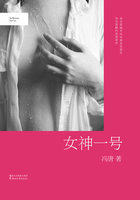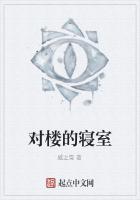The King's School at Tercanbury, to which Philip went when he was thirteen, prided itself on its antiquity. It traced its origin to an abbey school, founded before the Conquest, where the rudiments of learning were taught by Augustine monks; and, like many another establishment of this sort, on the destruction of the monasteries it had been reorganised by the officers of King Henry VIII and thus acquired its name. Since then, pursuing its modest course, it had given to the sons of the local gentry and of the professional people of Kent an education sufficient to their needs. One or two men of letters, beginning with a poet, than whom only Shakespeare had a more splendid genius, and ending with a writer of prose whose view of life has affected profoundly the generation of which Philip was a member, had gone forth from its gates to achieve fame; it had produced one or two eminent lawyers, but eminent lawyers are common, and one or two soldiers of distinction; but during the three centuries since its separation from the monastic order it had trained especially men of the church, bishops, deans, canons, and above all country clergymen: there were boys in the school whose fathers, grandfathers, great-grandfathers, had been educated there and had all been rectors of parishes in the diocese of Tercanbury; and they came to it with their minds made up already to be ordained. But there were signs notwithstanding that even there changes were coming; for a few, repeating what they had heard at home, said that the Church was no longer what it used to be. It wasn't so much the money; but the class of people who went in for it weren't the same; and two or three boys knew curates whose fathers were tradesmen: they'd rather go out to the Colonies (in those days the Colonies were still the last hope of those who could get nothing to do in England) than be a curate under some chap who wasn't a gentleman. At King's School, as at Blackstable Vicarage, a tradesman was anyone who was not lucky enough to own land (and here a fine distinction was made between the gentleman farmer and the landowner), or did not follow one of the four professions to which it was possible for a gentleman to belong. Among the day-boys, of whom there were about a hundred and fifty, sons of the local gentry and of the men stationed at the depot, those whose fathers were engaged in business were made to feel the degradation of their state.
The masters had no patience with modern ideas of education, which they read of sometimes in The Times or The Guardian, and hoped fervently that King's School would remain true to its old traditions. The dead languages were taught with such thoroughness that an old boy seldom thought of Homer or Virgil in after life without a qualm of boredom; and though in the common room at dinner one or two bolder spirits suggested that mathematics were of increasing importance, the general feeling was that they were a less noble study than the classics. Neither German nor chemistry was taught, and French only by the form-masters; they could keep order better than a foreigner, and, since they knew the grammar as well as any Frenchman, it seemed unimportant that none of them could have got a cup of coffee in the restaurant at Boulogne unless the waiter had known a little English. Geography was taught chiefly by making boys draw maps, and this was a favourite occupation, especially when the country dealt with was mountainous: it was possible to waste a great deal of time in drawing the Andes or the Apennines. The masters, graduates of Oxford or Cambridge, were ordained and unmarried; if by chance they wished to marry they could only do so by accepting one of the smaller livings at the disposal of the Chapter; but for many years none of them had cared to leave the refined society of Tercanbury, which owing to the cavalry depot had a martial as well as an ecclesiastical tone, for the monotony of life in a country rectory; and they were now all men of middle age.
The headmaster, on the other hand, was obliged to be married and he conducted the school till age began to tell upon him. When he retired he was rewarded with a much better living than any of the under-masters could hope for, and an honorary Canonry.
But a year before Philip entered the school a great change had come over it. It had been obvious for some time that Dr. Fleming, who had been headmaster for the quarter of a century, was become too deaf to continue his work to the greater glory of God; and when one of the livings on the outskirts of the city fell vacant, with a stipend of six hundred a year, the Chapter offered it to him in such a manner as to imply that they thought it high time for him to retire. He could nurse his ailments comfortably on such an income. Two or three curates who had hoped for preferment told their wives it was scandalous to give a parish that needed a young, strong, and energetic man to an old fellow who knew nothing of parochial work, and had feathered his nest already; but the mutterings of the unbeneficed clergy do not reach the ears of a cathedral Chapter. And as for the parishioners they had nothing to say in the matter, and therefore nobody asked for their opinion. The Wesleyans and the Baptists both had chapels in the village.
When Dr. Fleming was thus disposed of it became necessary to find a successor. It was contrary to the traditions of the school that one of the lower-masters should be chosen. The common-room was unanimous in desiring the election of Mr. Watson, headmaster of the preparatory school; he could hardly be described as already a master of King's School, they had all known him for twenty years, and there was no danger that he would make a nuisance of himself. But the Chapter sprang a surprise on them. It chose a man called Perkins. At first nobody knew who Perkins was, and the name favourably impressed no one; but before the shock of it had passed away, it was realised that Perkins was the son of Perkins the linendraper. Dr. Fleming informed the masters just before dinner, and his manner showed his consternation. Such of them as were dining in, ate their meal almost in silence, and no reference was made to the matter till the servants had left the room. Then they set to. The names of those present on this occasion are unimportant, but they had been known to generations of school-boys as Sighs, Tar, Winks, Squirts, and Pat.
They all knew Tom Perkins. The first thing about him was that he was not a gentleman. They remembered him quite well. He was a small, dark boy, with untidy black hair and large eyes. He looked like a gipsy. He had come to the school as a day-boy, with the best scholarship on their endowment, so that his education had cost him nothing. Of course he was brilliant. At every Speech-Day he was loaded with prizes. He was their show-boy, and they remembered now bitterly their fear that he would try to get some scholarship at one of the larger public schools and so pass out of their hands. Dr. Fleming had gone to the linendraper his father — they all remembered the shop, Perkins and Cooper, in St. Catherine's Street — and said he hoped Tom would remain with them till he went to Oxford. The school was Perkins and Cooper's best customer, and Mr. Perkins was only too glad to give the required assurance. Tom Perkins continued to triumph, he was the finest classical scholar that Dr. Fleming remembered, and on leaving the school took with him the most valuable scholarship they had to offer. He got another at Magdalen and settled down to a brilliant career at the University. The school magazine recorded the distinctions he achieved year after year, and when he got his double first Dr. Fleming himself wrote a few words of eulogy on the front page. It was with greater satisfaction that they welcomed his success, since Perkins and Cooper had fallen upon evil days: Cooper drank like a fish, and just before Tom Perkins took his degree the linendrapers filed their petition in bankruptcy.
In due course Tom Perkins took Holy Orders and entered upon the profession for which he was so admirably suited. He had been an assistant master at Wellington and then at Rugby.
But there was quite a difference between welcoming his success at other schools and serving under his leadership in their own. Tar had frequently given him lines, and Squirts had boxed his ears. They could not imagine how the Chapter had made such a mistake. No one could be expected to forget that he was the son of a bankrupt linendraper, and the alcoholism of Cooper seemed to increase the disgrace. It was understood that the Dean had supported his candidature with zeal, so the Dean would probably ask him to dinner; but would the pleasant little dinners in the precincts ever be the same when Tom Perkins sat at the table? And what about the depot? He really could not expect officers and gentlemen to receive him as one of themselves. It would do the school incalculable harm. Parents would be dissatisfied, and no one could be surprised if there were wholesale withdrawals. And then the indignity of calling him Mr. Perkins! The masters thought by way of protest of sending in their resignations in a body, but the uneasy fear that they would be accepted with equanimity restrained them.
“The only thing is to prepare ourselves for changes,” said Sighs, who had conducted the fifth form for five and twenty years with unparalleled incompetence.
And when they saw him they were not reassured. Dr. Fleming invited them to meet him at luncheon. He was now a man of thirty-two, tall and lean, but with the same wild and unkempt look they remembered on him as a boy. His clothes, ill-made and shabby, were put on untidily. His hair was as black and as long as ever, and he had plainly never learned to brush it; it fell over his forehead with every gesture, and he had a quick movement of the hand with which he pushed it back from his eyes. He had a black moustache and a beard which came high up on his face almost to the cheek-bones, He talked to the masters quite easily, as though he had parted from them a week or two before; he was evidently delighted to see them. He seemed unconscious of the strangeness of the position and appeared not to notice any oddness in being addressed as Mr. Perkins.
When he bade them good-bye, one of the masters, for something to say, remarked that he was allowing himself plenty of time to catch his train.
“I want to go round and have a look at the shop,” he answered cheerfully.
There was a distinct embarrassment. They wondered that he could be so tactless, and to make it worse Dr. Fleming had not heard what he said. His wife shouted it in his ear.
“He wants to go round and look at his father's old shop.”
Only Tom Perkins was unconscious of the humiliation which the whole party felt. He turned to Mrs. Fleming.
“Who's got it now, d'you know?”
She could hardly answer. She was very angry.
“It's still a linendraper's,” she said bitterly. “Grove is the name. We don't deal there any more.”
“I wonder if he'd let me go over the house.”
“I expect he would if you explain who you are.”
It was not till the end of dinner that evening that any reference was made in the common-room to the subject that was in all their minds. Then it was Sighs who asked:
“Well, what did you think of our new head?” They thought of the conversation at luncheon. It was hardly a conversation; it was a monologue. Perkins had talked incessantly. He talked very quickly, with a flow of easy words and in a deep, resonant voice. He had a short, odd little laugh which showed his white teeth. They had followed him with difficulty, for his mind darted from subject to subject with a connection they did not always catch. He talked of pedagogics, and this was natural enough; but he had much to say of modern theories in Germany which they had never heard of and received with misgiving. He talked of the classics, but he had been to Greece, and he discoursed of archaeology; he had once spent a winter digging; they could not see how that helped a man to teach boys to pass examinations, He talked of politics. It sounded odd to them to hear him compare Lord Beaconsfield with Alcibiades. He talked of Mr. Gladstone and Home Rule. They realised that he was a Liberal. Their hearts sank. He talked of German philosophy and of French fiction. They could not think a man profound whose interests were so diverse.
It was Winks who summed up the general impression and put it into a form they all felt conclusively damning. Winks was the master of the upper third, a weak-kneed man with drooping eye-lids, He was too tall for his strength, and his movements were slow and languid. He gave an impression of lassitude, and his nickname was eminently appropriate.
“He's very enthusiastic,” said Winks.
Enthusiasm was ill-bred. Enthusiasm was ungentlemanly. They thought of the Salvation Army with its braying trumpets and its drums. Enthusiasm meant change. They had goose-flesh when they thought of all the pleasant old habits which stood in imminent danger. They hardly dared to look forward to the future.
“He looks more of a gipsy than ever,” said one, after a pause.
“I wonder if the Dean and Chapter knew that he was a Radical when they elected him,” another observed bitterly.
But conversation halted. They were too much disturbed for words.
When Tar and Sighs were walking together to the Chapter House on Speech-Day a week later, Tar, who had a bitter tongue, remarked to his colleague:
“Well, we've seen a good many Speech-Days here, haven't we? I wonder if we shall see another.”
Sighs was more melancholy even than usual.
“If anything worth having comes along in the way of a living I don't mind when I retire.”















